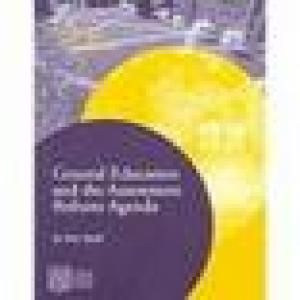Resources
Practical advice and candid reflection on the author’s 20 years experience writing both successful and unsuccessful grant proposals.
American colleges and universities have invested millions of dollars in equipment and "smart classrooms," but the jury is still out on whether computers have led to a revolutionary improvement in the quality of teaching. Professors are finding new ways to lecture, to run lab sessions, and to interact with students, however. The Chronicle dispatched reporters to classrooms across the country to find some of the most promising or unusual methods of teaching with technology. Some of the courses involve teams of professors and designers, as well as serious investments of time and money, while others are techniques that individual professors have developed using tools that are common on most campuses. No matter how much support they have, the professors have hit their share of roadblocks. But these wired teachers say students are responding positively as class sessions become more interactive. (From the Publisher)
Recent decades have seen an increasing stress on the need to monitor and manage educators, and hold them to account. This article argues that, while learning outcomes can be valuable if properly used, they have been misappropriated and adopted widely at all levels within the education system to facilitate the managerial process. This has led to their distortion. The claim that they can be made precise by being written with a prescribed vocabulary of special descriptors so as to serve as objective, measurable devices for monitoring performance, is fundamentally mistaken, and they may be damaging to education when used in this way. After a brief sketch of the background to the notion of learning outcomes, arguments are presented to show their vacuity and uselessness when misused in this way, and explanations of their inadequacies are offered.

Written by national expert on assessment, Peter Ewell, this paper reflects on the challenges of general education and assessment reform in the context of recent calls for accountability in higher education. The author argues that by focusing on abilities, alignment, assessment, and action, campuses can both improve general education programs and demonstrate student achievement of learning outcomes key to success in the 21st century. This book is ideal for general education or curricular reform committees and campus discussions about assessment, general education, and accountability. (From the Publisher)
Teaching narratively calls forth images of storytelling, simulation gaming, dramatization and ritual reenactments. But teaching narratively is more than a set of techniques that can be thrown into an eclectic bag of tricks. Narrative is a significant mode of human communication, a bearer of culture, and a potentially profound and far-reaching educational methodology.